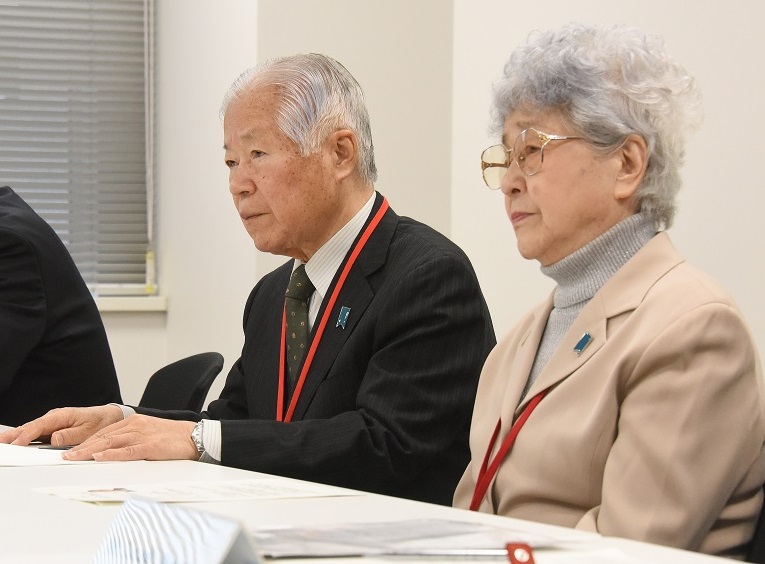
- ARAB NEWS
- 25 Apr 2024

TOKYO: Shigeru Yokota, father of Megumi Yokota, a Japanese abductee to North Korea, and former leader of a group of the families of abduction victims, died of old age on Friday afternoon at a hospital in Kawasaki, Kanagawa Prefecture, south of Tokyo. He was 87.
Shigeru, together with his wife, Sakie, 84, was heavily involved in activities for bringing back his daughter and other Japanese people kidnapped by North Korea.
Born in Tokushima Prefecture, western Japan, in 1932, Shigeru married Sakie when he was working at the Bank of Japan's branch in Nagoya, Aichi Prefecture, central Japan. Megumi, who was born in 1964, went missing while she was on her way home from her junior high school in the central Japan city of Niigata on Nov. 15, 1977, a day after Shigeru's 45th birthday. Megumi was 13 years old when she disappeared. At the time, the family was living in Niigata due to Shigeru's work for the central bank.
In 1997, after Shigeru's retirement from the BOJ, it was confirmed that Megumi had been abducted by North Korea, and the Yokotas and the families of other abduction victims established the group in March that year for the resolution of the abduction issue. Shigeru, who became the first leader of the group, launched a signature campaign with Sakie to realize the return of their daughter.
At a historic meeting in Pyongyang in September 2002 between then Japanese Prime Minister Junichiro Koizumi and then North Korean leader Kim Jong Il, the North Korean side admitted the abduction of Japanese nationals and offered an apology while claiming that Megumi had died. Shigeru broke into tears at a subsequent press conference.
But the basic facts of Megumi's death turned out to be obscure. North Korea changed what it claimed to be the date of Megumi's death following an account by an abduction victim who returned to Japan, while bones that the reclusive country handed to Japan as Megumi's in November 2004 were later confirmed to be someone else's based on a DNA test.
The father started to see his health deteriorate around 2005. He underwent surgery to remove the gallbladder in 2007 and quit as the leader of the group of the families of abductees in November the same year.
But Shigeru continued to work for the rescue of his daughter, conducting over 1,300 speeches in total. The number of signatures collected reached the goal of 10 million in April 2013.
In Mongolia in March 2014, Shigeru and Sakie met with Kim Eun Gyong, Megumi's daughter born in North Korea, for the first time.
Since being hospitalized in April 2018, Shigeru had been absent from events related to the rescue of Megumi.
In May 2019, Sakie met with U.S. President Donald Trump during his Japan visit. But Shigeru was absent.
North Korea pledged in 2008 and again in 2014 to reinvestigate the abduction issue. But the country failed to fulfil its promise.
Following the death of Shigeru, Sakie released a statement in which she and Megumi's two younger brothers--Takuya and Tetsuya--expressed their gratitude for the support and encouragement the family received for their activities to realize the return home of their loved one.
Sakie said: "My husband and I have worked hard to bring back Megumi, but he ended up being unable to see Megumi again. I can't sort out my feelings now."
Shigeru "has long fought for the return of his daughter," Shigeo Iizuka, 82, current leader of the families' group and brother of Yaeko Taguchi, an abduction victim, said. His death is painful, Iizuka added.
"I was surprised" to hear the news of his death, said Kenichi Ichikawa, 75, whose brother, Shuichi, had been abducted by North Korea. Ichikawa said he last met Shigeru about five years ago. "He was great and always smiling."
Shigeru has been "an icon" of the group of the abduction victims' families and "has continued to lead us in our activities," Ichikawa said.
"The novel coronavirus crisis has made it difficult for the group to continue its activities, but we won't give up until we are able to start fighting again after the epidemic is brought under control," Ichikawa said.
JIJI Press